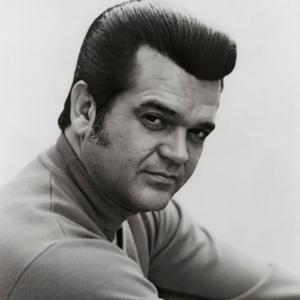
Conway Twitty: A Heavenly Loss in “I May Never Get to Heaven”
Conway Twitty’s rendition of “I May Never Get to Heaven” is a poignant exploration of heartbreak and loss, a theme that the country music icon often returned to with profound emotional depth. Released in 1979, the song became a signature piece in Twitty’s repertoire, showcasing his extraordinary ability to convey raw, unfiltered pain.
Background
At its core, “I May Never Get to Heaven” is a ballad of profound despair. The lyrics paint a vivid picture of a man consumed by grief, his heart shattered by the loss of love. Twitty’s vocal performance is nothing short of masterful, his voice trembling with a vulnerability that is both heartbreaking and captivating. He imbues the song with a sense of resignation, as if accepting the inevitability of his earthly suffering.
The song’s arrangement is equally evocative, with a melancholic melody that underscores the lyrics’ somber tone. The steel guitar, a quintessential country instrument, adds a layer of emotional depth, while the rhythmic pulse of the drums provides a subtle counterpoint to the song’s overall somber mood. Twitty’s vocal delivery is impeccable, his phrasing and intonation perfectly capturing the nuances of the character’s emotional journey.
Beyond its emotional impact, “I May Never Get to Heaven” is a testament to Twitty’s enduring appeal as a country music legend. His ability to connect with audiences on a deeply personal level is evident in the song’s enduring popularity. It remains a powerful reminder of the healing power of music, offering solace to those who have experienced the pain of loss.
“I May Never Get to Heaven” is more than just a song; it is a cathartic experience that invites listeners to share in the singer’s emotional journey. Twitty’s interpretation of this heartbreaking ballad stands as a testament to his enduring legacy as one of country music’s greatest vocalists.